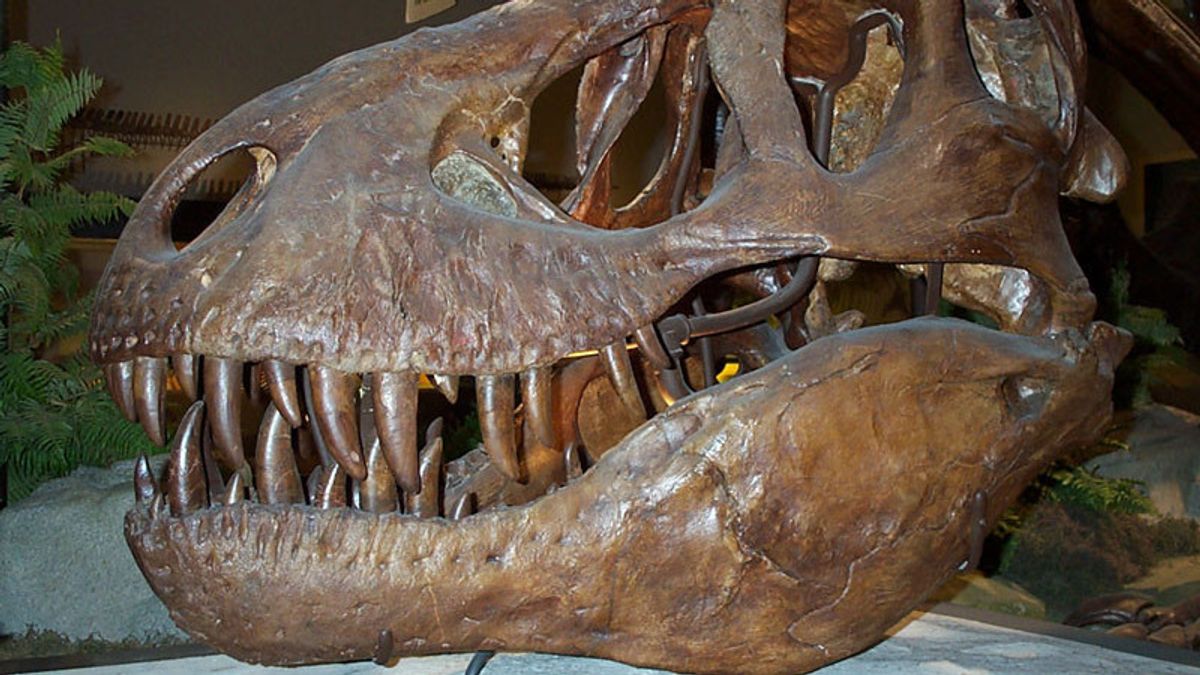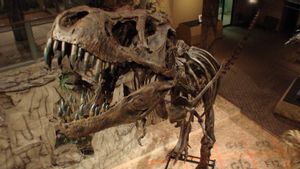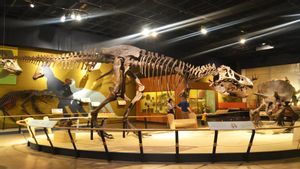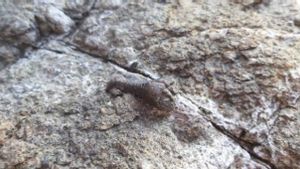JAKARTA - Paleontologists in Argentina have identified previously unknown dinosaur species. The so-called species had large claws, a powerful bite, and a keen sense for hunting prey in Patagonia 80 million years ago.
The fossil remains of Llukalkan Aliocranianus, as the species is named, include a remarkably preserved and undamaged brain skeleton excavated in the Bajo de la Carpa Formation in Argentina.
Llukalkan means 'one who causes fear' in the native Mapuche language. Meanwhile, Aliocranianus is Latin for "unusual skull".
Part of a family of dinosaurs called abelisaurids, the creature would broadly resemble Tyrannosaurus rex, with short, stout arms. But the very short and deep skulls, which often had crests, bumps, and horns set them apart.
Approximately 5 meters long, the Lukalkan Aliocranianus would explore Patagonia and other areas of the prehistoric southern subcontinent of Gondwana, including Africa, India, Antarctica, Australia, and South America.
Its most characteristic feature is the small air-filled sinuses in the middle ear zone. This trait has not been seen in other abelisaurids found so far, according to the study published Tuesday in the 'Journal of Vertebrate Paleontology'.
That is, Lukalkan may hear differently, and perhaps better than other abelisaurids, more closely to the hearing of modern-day crocodiles.
"The peculiarity of this dinosaur is that it has a cavity in the ear area that other abelisaurids don't have, which could give this species a different hearing capacity, perhaps a greater range of hearing", explained Federico Gianechini, a paleontologist at the National University of San Luis, Argentina, told CNN by email.
"This, together with its keen sense of smell, would have conferred great predatory abilities for this species", continued the study's lead author.
The fossil remains were discovered in 2015 by accident during excavations at a place known as La Invernada, near the city of Rincón de los Sauces, in the province of Neuquén, Gianechini said.
The dinosaurs' unique auditory mechanisms suggest that abelisaurids reproduced just before the extinction of the dinosaurs 67 million years ago.
"These dinosaurs are still trying new evolutionary paths and rapidly diversifying before they become completely extinct", said Ariel Mendez, co-author of the study and paleontologist from the Institute of Patagonian Geology and Paleontology, Argentina in a statement.
SEE ALSO:
The main purpose of the excavations at that time was to find the sauropod dinosaurs (large and slow plant-eaters) they had discovered a year earlier. However, they saw bones sticking out of the ground a few days before completing their excavation.
The English, Chinese, Japanese, Arabic, and French versions are automatically generated by the AI. So there may still be inaccuracies in translating, please always see Indonesian as our main language. (system supported by DigitalSiber.id)














